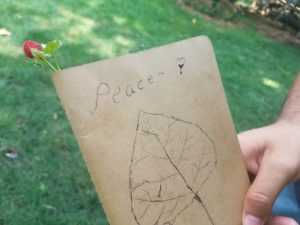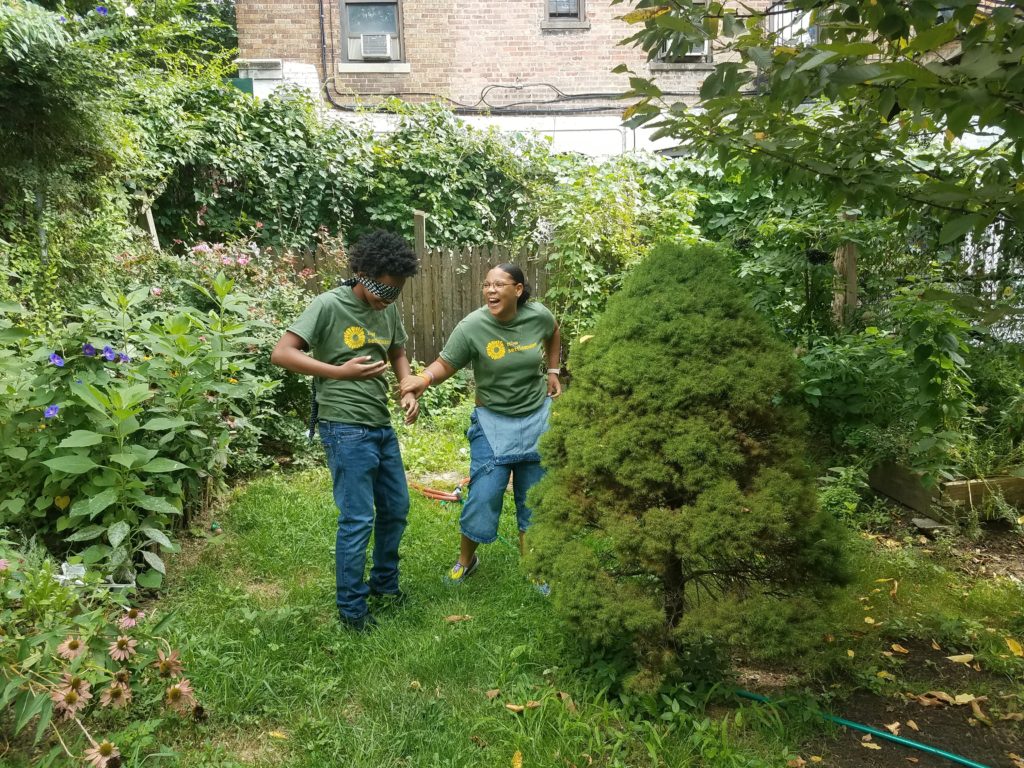This past summer, our Youth Leaders met Dian, a Bronx gardener originally hailing from Jamaica, who volunteers her time at the College Avenue Community Garden. And even though Dian lives in a community still facing the ills of drug addiction, poverty, and unemployment, she shared she feels safe in the garden, and wishes for more young people to be engaged with these spaces. As S, one of our youth leaders wrote in his end-of-program evaluation, “Youth are the next generation so they should be involved in a lot of things so they can better themselves and be ready for the future.”
Planning for our youth-in-the-garden days this summer, I was excited but also nervous. I wanted us to have fun but also to be critical about the deeper issues at stake. I thought “yes we must love the land and reconnect to it but how do we fight the capitalist, extractive powers that are killing nature, that see nature as dead matter?”. “Land rights activists continue to be killed and minority and indigenous communities displaced from their homes and lands – how do we step in?!”. Most importantly, “how do we effectively engage youth in these conversations and help them learn from the Earth?”
Our youth leaders are determined individuals who value the teachings of elders and mentors in guiding their steps. “Everything I need to know I learned from my 8th grade English Teacher…she taught me that the world isn’t fair, that everything I want, I have to get on my own…”, said M, prompted by a piece we read on one of our garden visits, Two Views of Nature, which looks into the lessons nature teaches us. Nature can teach us great lessons too, if we let it.

Some don’t seem to think of youth as powerhouses for leading change, and they shy away from integrating young people into spaces. They have measured all youth with the same yardstick. Why? Perhaps the fact that the Bronx is the borough with the highest high school drop-out rates has influenced how its young people are perceived. It might seem like faith in youth is at a record low. However, all across New York City and beyond, youth and youth workers are engaged in meaningful work. From fighting the school to prison pipeline and institutionalized racism to creating just and alternative food systems, youth can and have the power to bring about change. And the old school must have their backs!
We are inspired by the work of our friend Dian and her desire to bring youth into the work. We are also inspired by our friends in Kingston, Red Hook, and East New York, among others, and by the teachings and offerings of Farming While Black, whose Youth on Land curriculum guided our steps in crafting five intro garden sessions for our own group. It doesn’t end here. It begins.

By Maria Caicedo
Cooking and Gardening Coordinator